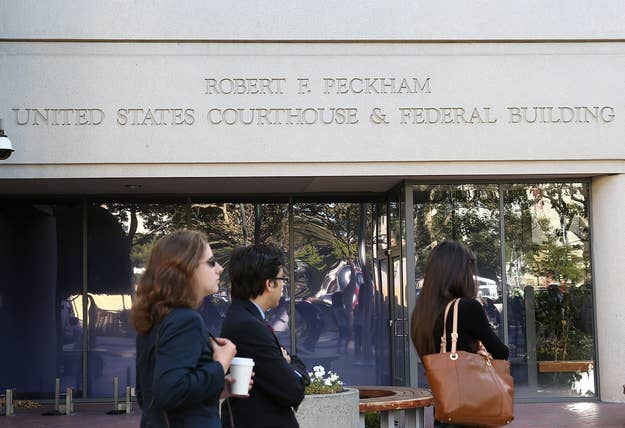
Yesterday, researchers released a data-backed study that affirmed what tech types have known for years: patent trolling is real, and growing.
Patent trolling, like various other forms of web-based (not bridge-based) trolling, is a modern invention. It's a pejorative term that gets thrown around to describe a range of ways people try to profit from intellectual property claims, but the most pernicious version occurs when a company exists to buy up patents simply to sue other companies out of existence. The term has been around for the past decade or so, and has gotten a lot of press — like an entire episode of This American Life that examined the patent firm Intellectual Ventures, one of the top five patent holders in the US.
According to Robin Feldman, a professor at University of California, Hastings College of the Law in San Francisco and one of the study's authors, "there had been an extensive amount of discussion about patent trolls" — companies who aggressively pursue patent claims, but have no ability or interest in actually executing the idea — "but little hard data."
As part of a 2011 Congressional inquiry into the troll-infested patent world, the study's authors were asked to provide data to the General Accounting Office (GAO), a nonpartisan government entity, on copyright lawsuits. This study, titled "America Invents Act 500: Effects of Patent Monetization Entities on US Litigation," is the interpretation of that data.
And what did they find? Emphasis added:
Chief among the conclusions of the study are the following: First, based on our sample, lawsuits filed by patent monetizers have increased significantly over the five-year period. The sheer number of cases has increased, as well as the percentage of overall case filings represented by monetizers. In other words, lawsuits filed by patent monetizers are on the rise, while lawsuits filed by operating companies have fallen.

Specifically, lawsuits filed by monetizers — trolls — increased from 22 percent of the cases filed five years ago to almost 40 percent of the cases filed in the most recent year. In addition, monetizers were also heavily represented in the list of those who filed the greatest number of lawsuits. Of the 5 parties in the sample who filed the greatest number of lawsuits during the period studied, 4 were monetizers. Only one was an operating company — a company that actually makes things.
"The numbers are remarkable both for dramatic rise and how much litigation is now prompted by patent monetizers," said Feldman, who has written extensively on patent and copyright in the past. But trolls are only part of a larger, growing patent problem. On Monday, the New York Times dropped a huge front-page story on how big companies (the "operators" in Feldman's lexicon) have become obsessed with patenting their innovations. The numbers are staggering: 540,000 patent applications were filed in 2011, a jump of more than 50% since 2000, with Google snapping up 2,700 patents since 2000 and Microsoft getting 21,000.
Feldman's research, though, demonstrates the dramatic rise of "patent monetization" practices — the sub-economy around patents that has nothing to do with products, and everything to do with pushing pieces of paper around. It is a very expensive set of papers: according to an industry group, the average patent lawsuit costs between $900,000 to $6 million to defend — which is why most of the action is out of the court, as companies settle, early and often.
Feldman said that while trolls have tried to make money from patents since they were invented, there is no historical parallel the scope of what's to what is going on now. Apart from this study, she's seen behavior normally associated with the high-tech world in all kinds of other realms — including in hospitals, where the makers of a much-used mental exam have tried to collect fees whenever it's used. Other stories back that up: patent litigation really has the power to ruin everything, as this great New York Times story details (there are music patent trolls who buy up rights to songs in case someone samples them) — and even the 2011 law that spurred this study has failed to stop malignant intellectual property growth.
"Patent trolls are a symptom of a patent system run amok," Feldman said. And who loses? "The consumer. When there's less to spend on innovation, the consumer always loses."
